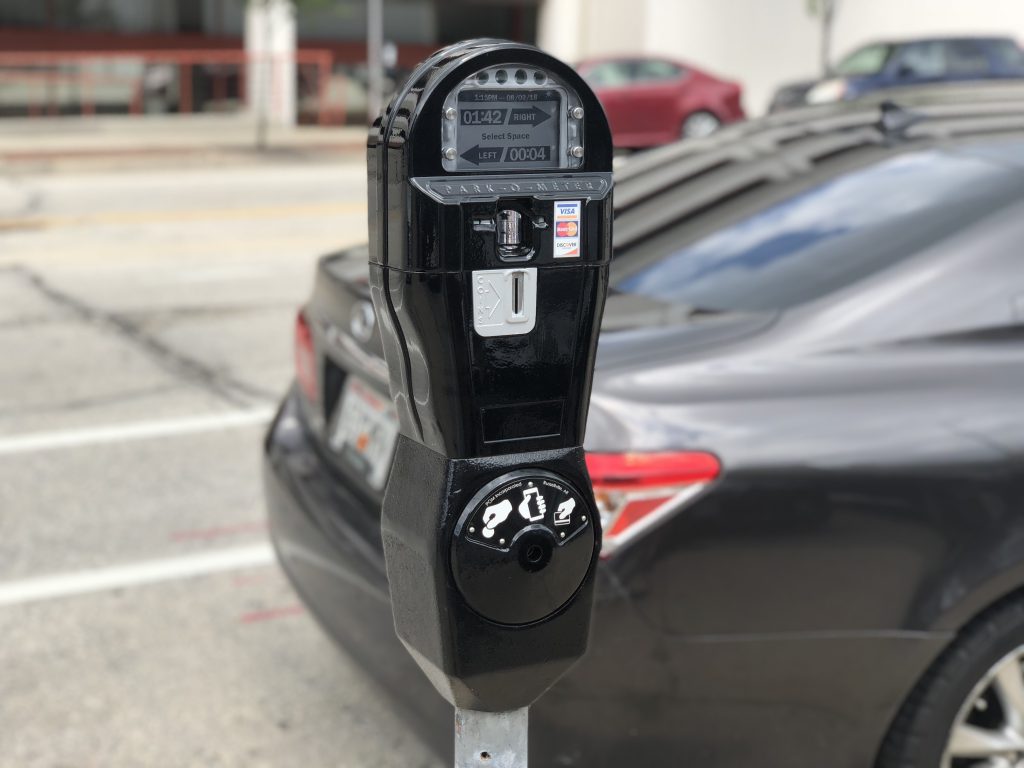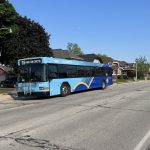Extended Parking Meter Hours Sparks City Hall Debate, Possible Repeal
But committee holds off for now, citing delayed implementation.
The Common Council’s quiet adoption of a proposal to extend downtown parking meter hours later into the night and on Saturdays became a hot button issue at City Hall after Urban Milwaukee reported on the effort and several residents and businesses reached out.
“There were representations [by the Department of Public Works] that all of the stakeholders were on board,” said Alderman Robert Bauman of the department’s Feb. 16 presentation. He later learned that many of the discussions were actually in 2019. “I said ‘come on.'”
The alderman, who represents much of the area, stated two key concerns – that the extended meters would make it unnecessarily difficult for visitors of residents that live on primarily residential streets and that the nuances of the policy weren’t properly communicated or defined. That communication included when the policy would be put into place.
“If we rescind it, we can certainly reconsider it at some point in the future,” said Bauman to the Public Safety & Health Committee on Thursday morning.
“This file was not intended to surprise or hide its actions,” said DPW Commissioner Jerrel Kruschke. The committee heard the original proposal in December and February. It gives the department broad discretion on where and when inside the zone to implement the policy, with no specific language on specific areas being exempted.
Reiterating February comments by the city’s parking services manager, Kruschke said the policy was really about encouraging turnover at parking spaces, which would make it easier to park downtown for short visits. “Yes, there is a revenue component, but it was really about access and turnover,” said the commissioner.
He said even in a best case scenario, the policy would not be implemented until 2024 because more communication was needed. “There is no extreme rush here,” said Kruschke.
But there is a concern that parking is a cost for the city, and that the city is revenue starved. “Free parking does cost the city dollars, it’s not free for the city nor the taxpayers,” he said, citing snow removal, pavement repair and the city’s parking management team.
“The two-hour restriction ends at six, I just want to be clear,” said Kruschke, addressing one frequently-cited issue. Starting at 4 p.m., you would be able to plug a meter for five hours without the need to move the vehicle.
Milwaukee resident and business owner Jay Holmes testified against the proposal and said he often shops in Oak Creek because of issues parking. Who’s on Third owner Bobby Wiltgen also spoke against the proposal, and said parking issues are driving him to look locate elsewhere. He is opening a new location on W. Layton Ave., with a 30-car parking lot. “I am not anti-city, what I am trying to get across is there needs to be more public-private communication,” said Wiltgen, who said the city’s revenue needs should be addressed through a sales tax.
Historic Third Ward business improvement district leader Paul Schwartz and board chair Ron San Felippo spoke in favor of the policy, but said more communication and refinement was needed. The two said the Third Ward’s parking study could be used as a guide where meter changes were needed.
Numerous committee members pushed for the language on the proposal to be cleaned up, including how streets would be exempted. Bauman cited the 400 block of N. 3rd Street, on which the only building is a residential condominium structure, and an example of a street that would be negatively impacted by a blanket change.
“I am not comfortable with this thing as a whole. There seems to be a lot of gaps,” said Alderman Mark Borkowski.
“We will look at amending the original file,” said Bauman, who backed off support for his original proposal to rescind the previously-approved file.
Bauman also suggested a pass that would have a higher price point, but could avoid the need to plug the meters be offered to downtown residents or frequent visitors as a convenience factor. Committee chair JoCasta Zamarripa suggested those individuals should use the city’s third-party parking app. DPW did not comment on that proposal.
A 2018 policy, backed by Bauman, would use market-based factors to determine parking prices, but DPW has never fully implemented the proposal. For more discussion on that, see our March 2 article.
Political Contributions Tracker
Displaying political contributions between people mentioned in this story. Learn more.
- June 9, 2016 - Mark Borkowski received $250 from Ron San Felippo
- February 12, 2016 - Robert Bauman received $100 from Bobby Wiltgen
- September 18, 2014 - Robert Bauman received $386 from Ron San Felippo
Eyes on Milwaukee
-
Church, Cupid Partner On Affordable Housing
 Dec 4th, 2023 by Jeramey Jannene
Dec 4th, 2023 by Jeramey Jannene
-
Downtown Building Sells For Nearly Twice Its Assessed Value
 Nov 12th, 2023 by Jeramey Jannene
Nov 12th, 2023 by Jeramey Jannene
-
Immigration Office Moving To 310W Building
 Oct 25th, 2023 by Jeramey Jannene
Oct 25th, 2023 by Jeramey Jannene





















People who live in and visit cities know that parking fees help manage access to the supply so that they can get to where they want to go. Without parking management, the free-for-all hunting for “free” parking congests the streets, frustrates customers, and causes a hazard for all traffic.
If you haven’t already, check into the research and background in parking reform that has been going on for decades. Decision makers and the general public are often shocked to discover that there is research in the area of parking economics which turns over many assumptions about oversupplies of “free” parking and the nature of highly successful areas where parking management is required.
Donald Shoup (https://ShoupDogg.com) has been recognized by The American Planning Association with a National Excellence Award for his parking research. His principal work, The High Cost of Free Parking was a groundbreaking book that forever changed the way parking is seen in urban contexts. His more recent book, Parking and the City (2018), is much more approachable, and its first chapter, a concise summary of The High Cost of Free Parking, is available for free on his Web site.